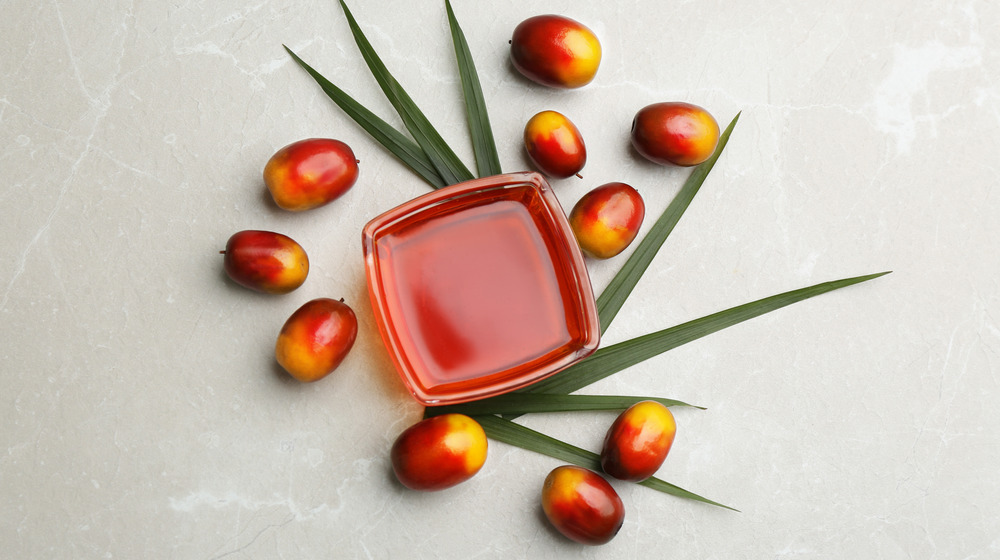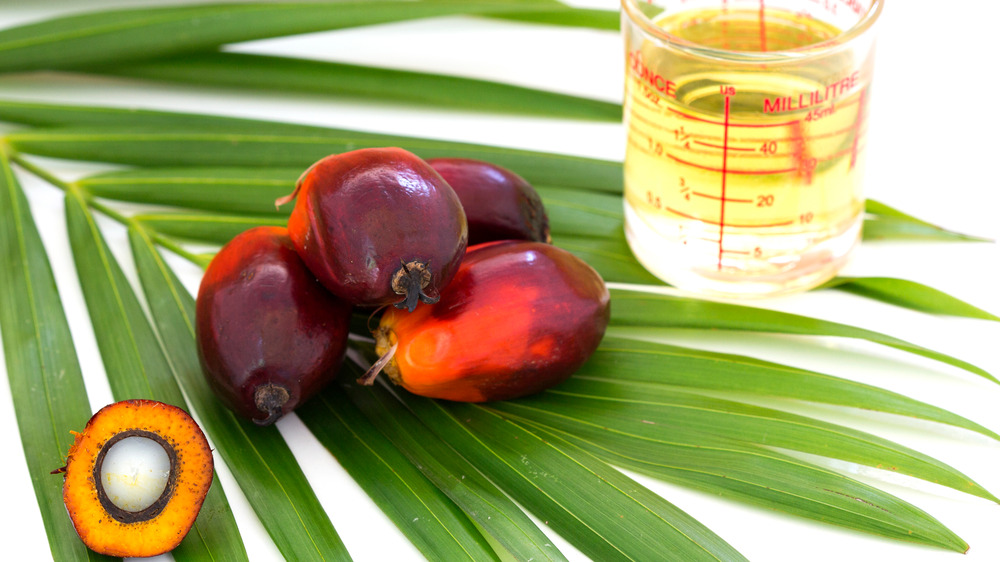Why You Should Avoid Cooking With Palm Oil
Palm oil is one of the most widely-used oils today, and it is also one of the most controversial when it comes to health benefits. The savory oil is touted as being good for you, but it is also considered to be a health risk factor because of the amount of saturated fat it contains.
Palm oil, not to be mistaken for palm kernel oil, is derived from the fruit of palms. The oil is cheap to process and is used in many foods including cookies, crackers, protein bars, and coffee creamers. It is also a popular choice for frying and sautéing because of its high-smoke point.
However, the oil contains 50 percent saturated fatty acids, which increases some health risk factors. All of the calories in the oil come from fat, with the other 40 percent being monounsaturated and the remaining 10 percent being polyunsaturated (via Healthline).
Palm Oil Is Associated With Cardiovascular Disease
The risk factors associated with palm oil deal mainly with heart health. An analysis conducted by the World Health Organization revealed that high consumption of the oil "found a significant relationship with higher mortality from ischaemic heart disease." Other studies have shown that levels of LDL cholesterol were elevated after consuming palm oil. In addition, another study showed that palm oil also seemed to increase the amount of small, dense LDL particles in the bloodstream, which are also linked to cardiovascular disease.
Palm oil is not without health benefits, which is why using it remains a matter of debate. However, the WHO and the Food and Agriculture Organization have linked high amounts of saturated fats with increased risk of cardiovascular disease since 2003. With healthier options such as olive, avocado, and sesame oils easily available, avoiding cooking with palm oil might be the better choice.


